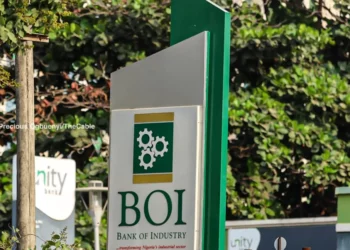Experts have condemned the rejection of emergency cases by healthcare practitioners in the country, stating that it was in violation of the Patient/Consumer Rights Under Federal Competition & Consumer Protection Act, National Health Act & Extant Laws, which guides on the provision of emergency medical attention and urgent care.
The Lagos State Attorney General and Commissioner for Justice, Moyosore Onigbanjo, speaking at the two-day public inquiry hosted by the Federal Competition and Consumer Protection Council (FCCPC) in Lagos, noted that rejecting accident victims was ethically repugnant.
Onigbanjo further stressed that there could be no justification for the rejection of accident victims by hospitals.
Onigbanjo, who was represented at the event by the Solicitor General and Permanent Secretary of the Lagos State Ministry of Justice, Titilayo Shitta-Bey, said the inquiry was to address the death of one Moradeun Balogun on December 2, 2019, due to the lack of a police report and similar unreported cases.
He said, “It is inconceivable that some hospitals and health care practitioners still deny victims of accidents timely medical attention and care. The right to health is entrenched in the constitution of the Federal Republic of Nigeria as well as in the National Health Act of 2014 and the Patients’ Bill of Rights. Section 20, subsection one of the National Health Act prohibits health care providers, workers and establishments from refusing a person medical treatment for any reason and further prescribes punishment where such a provision is violated.
There is, therefore, no justification for any victim to be denied access to care when needed especially in their most vulnerable state. In an emergency, the primary responsibility of any health care worker is to save life or at least, administer first aid or stabilise the victim.”
Onigbanjo noted that it was important for stakeholders to come together to understand realities, root causes and reach practicable agreements that would give accident victims access to immediate health care.
The Chief Executive Officer, FCCPC, Babatunde Irukera, on his part said, “We have made laws, we have done sensitisation and now we have come up with a public inquiry for everyone to contribute to and then see if it’s a jumping point to finally address this issue of asking for police reports before treating accident victims.
“This inquiry has shown that there are other underlying issues like emergency interventions and appropriate internal medical protocols within the facility and this is an opportunity for us to address all of it.”
He added that the first step towards sustainability of consumer rights was having public inquiries so that people could hold the government accountable.
“Paradoxically, from our resilience has complacency risen; in our greatest strength lies the weakness that threatens our society- accepting a status quo that’s a sad narrative of needless deaths.
“On this matter of sensitivity, responsiveness and urgency in emergency care, we sadly failed to set out at dawn, but yet, we must set out before dusk,” he said.
Irukera noted that the public inquiry was crucial and necessary, to ensure that Moradeun Balogun and others didn’t die in vain, and that others wouldn’t have to die needlessly.



